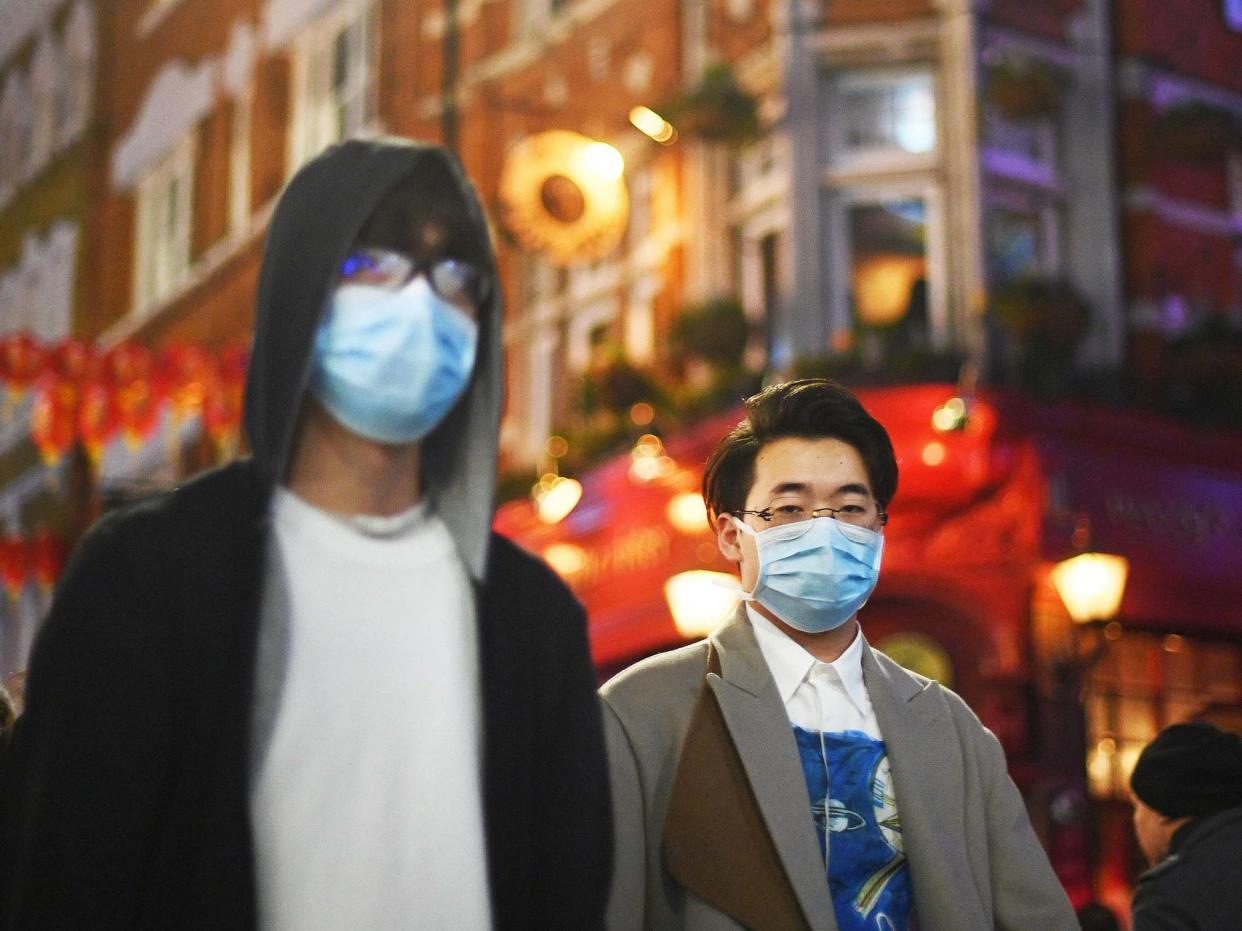Coronavirus: UK government launches campaign to reassure public as health chiefs urged to give ‘clearer information’ on outbreak

The UK government has launched a public health campaign in a bid to prevent the spread of coronavirus following confirmation of the first British cases of the deadly disease.
Adverts informing people on how to protect themselves are to appear on social media, in newspapers and on the radio from Sunday as part efforts to reassure the public over the outbreak, which has killed 304 people in China.
Basic hygiene such as washing hands regularly and using tissues to catch a cough or sneeze are key ways to help slow the spread of the virus, the advice says.
The UK-wide campaign suggests people should always carry tissues to use when coughing or sneezing and then to bin the tissue and wash their hands with soap and water or sanitiser gel.
The NHS advice will also target outlets and online forums which Chinese nationals in the UK are known to read and listen to.
“Lots of people are asking what they can do to help stop the spread of the virus. Today, we have launched a UK-wide advertising campaign to help the public protect themselves and each other,” Matt Hancock, the health secretary, said.
The campaign comes after the first two UK cases of coronavirus - a student at the University of York and their relative - were confirmed on Friday.
“While two cases of coronavirus have been confirmed in the UK, our world-class NHS is well prepared to manage these types of incidents,” Mr Hancock added.
“We are doing everything we can to protect the public.”
A spokesperson for the University of York has said Public Health England (PHE) has advised that the risk of infection being passed to others on campus is low.
"Current information from PHE suggests that the student did not come into contact with anybody on campus whilst they had symptoms, but investigations are ongoing to fully establish this," the spokesperson said on Saturday.
Professor Paul Hunter, an expert in medicine at the University of East Anglia, has criticised health chiefs for not providing more information sooner about the cases.
He described the decision to not initially confirm that the patients had been in York as “unfortunate” and suggested PHE's approach could change if more cases are confirmed in the UK.
“They should have given some more clear information about where it was, what dates they thought that contact might have happened, and given some more information about how they were going to identify contacts,” Professor Hunter said.
“I think some clearer information early on would have been very useful and would have been reassuring for a lot of people who have perhaps been in York.”
The professor added that he had a “huge amount of respect” for PHE and praised their work, but urged the organisation to do more to reassure the public.
Last week, the UK’s risk level for coronavirus was raised from low to moderate after the World Health Organisation declared an international public health emergency over the outbreak.
The Department of Health has said anyone who has travelled to the UK from anywhere in China, excluding Macau or Hong Kong, in the last 14 days and develops symptoms of cough, fever or shortness of breath should immediately self-isolate.
Those with symptoms have been advised to call the NHS line 111 or, if they live in Northern Ireland, contact their GP.
A spokesperson for the department has declined to disclose how much has been spent on the campaign.
Nearly 15,000 people have been infected worldwide by coronavirus, with the vast majority of cases in China.
Additional reporting by PA
Read more
University of York student one of confirmed UK coronavirus patients
Britons evacuated from Wuhan begin 14-day coronavirus quarantine
What is a global health emergency and how is the world responding?
WHO declares coronavirus a global emergency as 9,000 infected
Health secretary tells coronavirus infected to ‘self-isolate’
Coronavirus: UK experts race to track down contacts with infected duo

 Yahoo News
Yahoo News 
